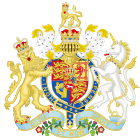The Cruel Treatment of Cattle Act 1822 (3 Geo. 4. c. 71) was an act of the Parliament of the United Kingdom with the long title "An Act to prevent the cruel and improper Treatment of Cattle"; it is sometimes known as Martin's Act, after the MP and animal welfare campaigner Richard Martin.[1] It is the first known piece of animal welfare legislation in the world.[2]
| Act of Parliament | |
 | |
| Long title | An Act to prevent the cruel and improper Treatment of Cattle. |
|---|---|
| Citation | 3 Geo. 4. c. 71 |
| Dates | |
| Royal assent | 22 July 1822 |
| Other legislation | |
| Amended by | Cruelty to Animals Act 1835 |
| Repealed by | Cruelty to Animals Act 1849 |
Status: Repealed | |
| Text of statute as originally enacted | |

The act listed "ox, cow, heifer, steer, sheep, or other cattle". This was held not to include bulls. A further act, the Cruelty to Animals Act 1835 (5 & 6 Will. 4. c. 59, s. 2) extended the wording of this act to remedy the issue.[3]
This act was repealed and superseded by the Cruelty to Animals Act 1849.[citation needed]
See also
editReferences
editWikisource has original text related to this article:
- ^ Inglis, Lucy (June 2012). "What Folly is This? Animal Welfare in Georgian London". London Historians. Retrieved 5 July 2021.
- ^ "Animal Welfare (Sentience) Bill". Hansard. 16 June 2021. Retrieved 5 July 2021.
My Lords, it is a privilege to open this debate. Today, in this House, we are opening a new chapter in this country's proud story of protecting and promoting animal welfare. I am proud, as I hope your Lordships are, of the UK's reputation as a nation of animal lovers. The UK introduced the world's first animal protection law: the Cruel Treatment of Cattle Act 1822.
- ^ The Rights of Persons, According to the Text of Blackstone: Incorporating the Alterations Down to the Present Time, Sir William Blackstone and James Stewart, 1839, p. 79.